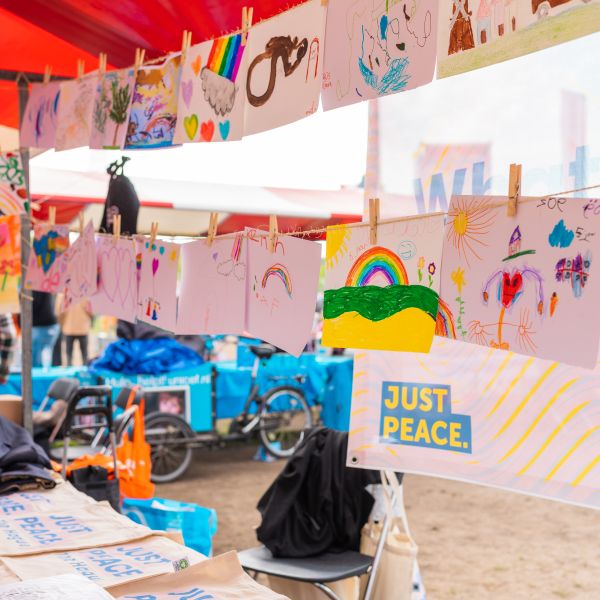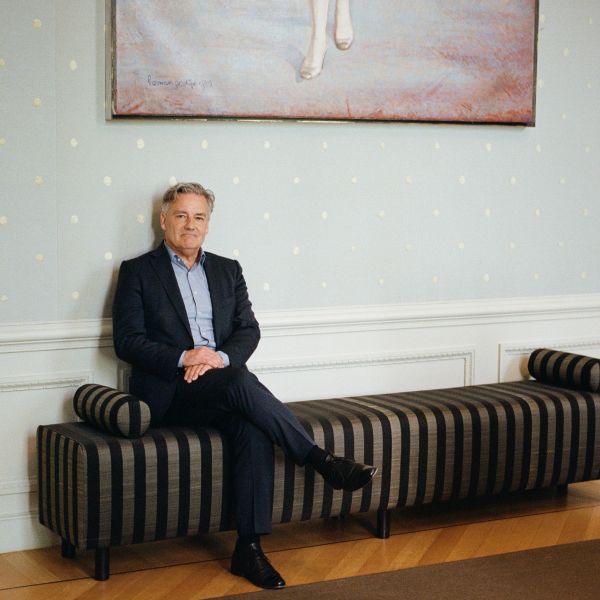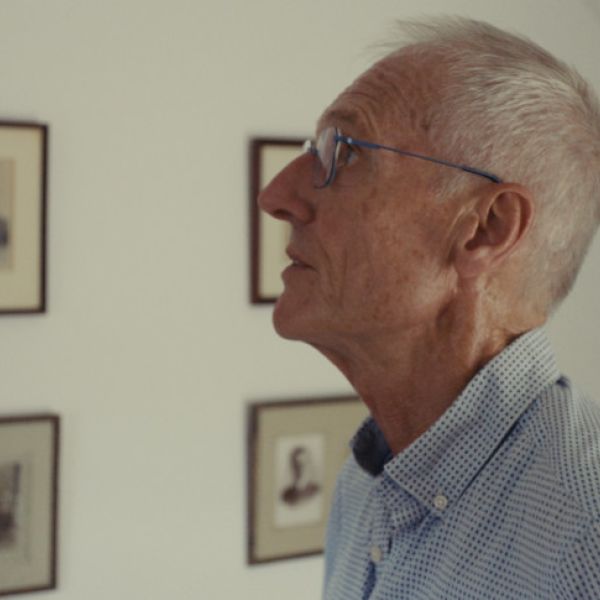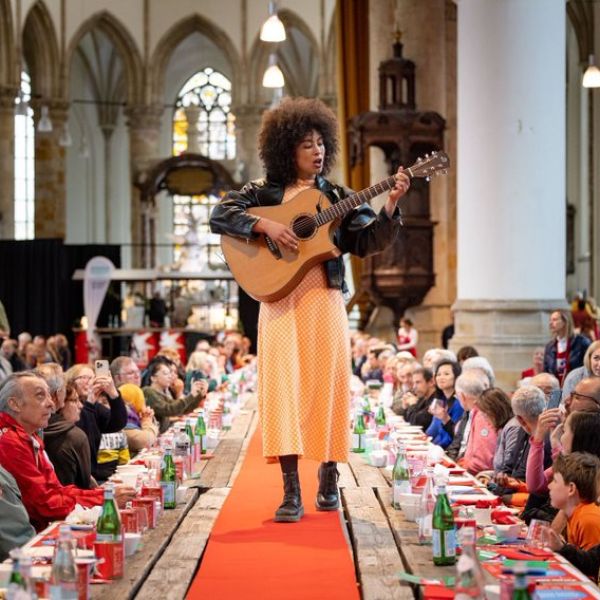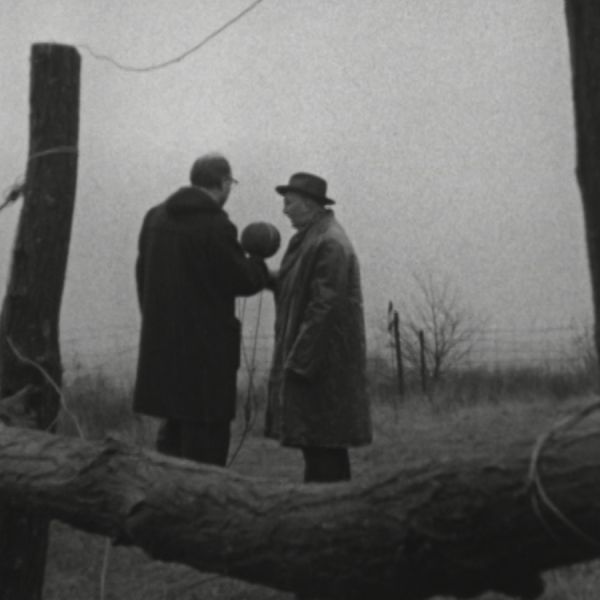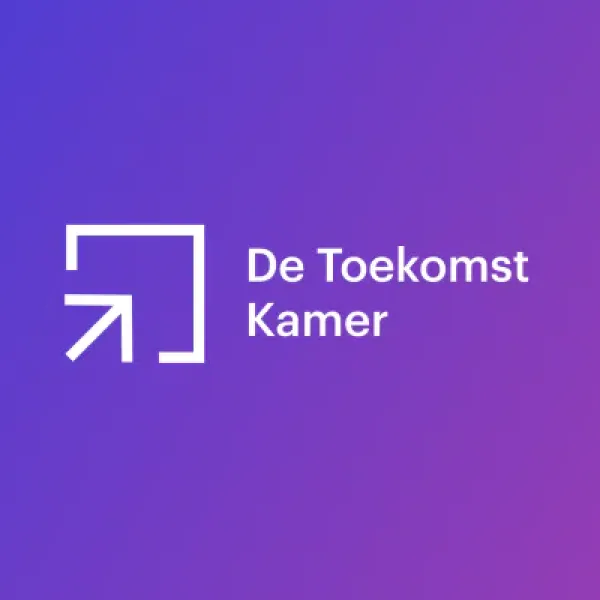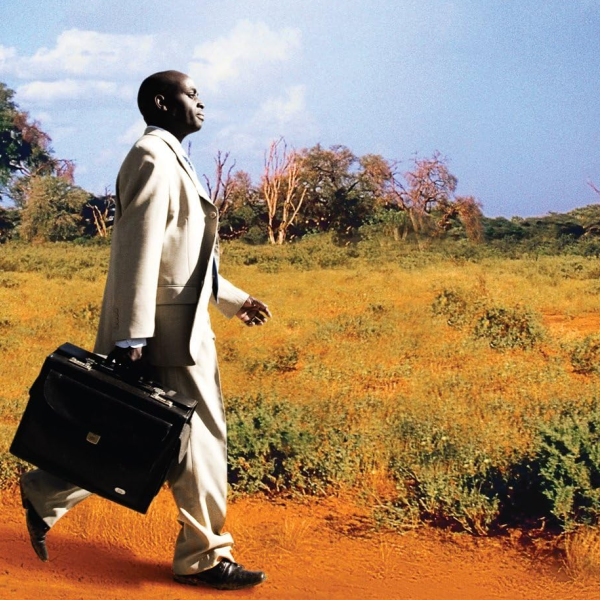"We hope that in the future the Freedom Meal will become as much of a tradition as going to a Liberation Festival."
When the 4 & 5 May committee asked them three years ago to become quartermaster for the Freedom Meal in The Hague, Floor and Anne-Lyke wholeheartedly said 'yes'! Since 2010 they have run their company Fa-bricage together with which they organize events in the cultural and social sector. This Liberation Day the ladies, in cooperation with Stichting Museumkwartier, are organizing the Freedom Meal with the Freedom Soup for the second time.
After last year's great success on the Lange Voorhout, spots at the table are unstoppable and restaurants are lining up to put the soup on their menu. "Our dream is for entire neighborhoods to sit down with each other on May 5 and open up to the neighbors across the street who they may never speak to," said Anne.
Photography: Loretta Monique & Anne Reitsma
Text: Loretta Monique
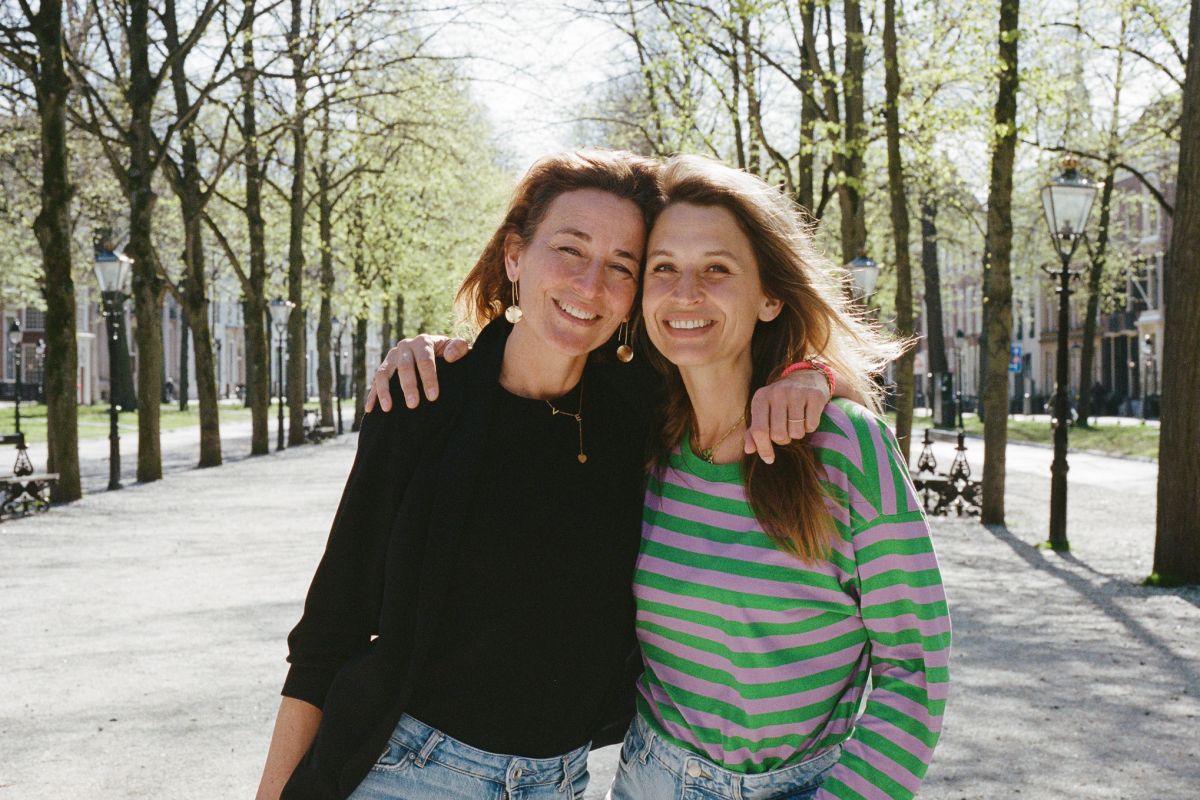
Na het grote succes van vorig jaar op het Lange Voorhout, zijn de plekken aan de tafel niet aan te slepen en staan restaurants in de rij om de soep op hun kaart te zetten. “Onze droom is dat hele wijken op 5 mei met elkaar aan tafel gaan en zich openstellen voor de buren aan de overkant die ze misschien nooit spreken.”
How did you come up with the idea of the Freedom Meal in its current form?
Floor: "When the committee asked us to roll this out three years ago, the pandemic broke out. Our original idea was: get together at the table, shoulder to shoulder and talk about freedom. Suddenly that was no longer possible and so, of necessity, we had to find another solution for the Freedom Meal. That became the Freedom Soup! Cans of soup were handed out for people to heat up and eat at home. This was a great success because it was so simple, anyone can make soup. When we got to physically sit down with each other again, we decided to keep that uncomplicated in it."
Anne-Lyke: "The soup stayed and we decided to organize a big meal where hundreds of people could participate. Our passion lies with the performing arts such as dance, theater, poetry and this seemed like the excellent way to make a complex topic like freedom discussable in an approachable way. To make this combination between food and performing arts successful, we asked "Table of the Idea" to help us. They have a concept where the tables you eat at are also the stage for performance."
"There is something peculiar about it; watching a performance that takes place a few inches from your plate of soup."
Floor: "We asked them: can't you put those tables on the Lange Voorhout for us? And so it happened. There is something strange about watching a performance that takes place a few centimeters from your plate of soup. Yet it also makes the step to talking to your neighbor smaller. This year we are working together again 'Table of Ideas,' but we have a different interpretation of the program."
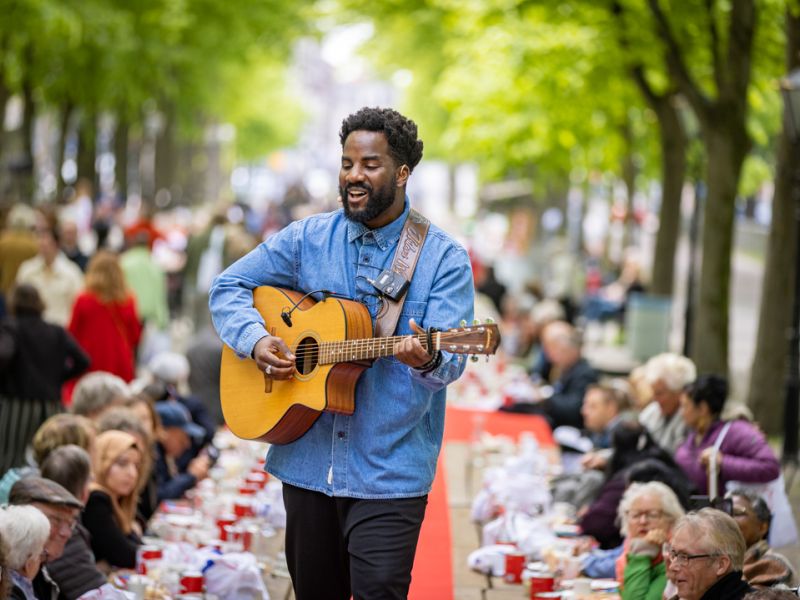
What can people expect this year?
Floor: "Our goal is to connect people with each other. The last edition of the Freedom Meal was a great success and for this year we asked ourselves the question: how can we roll this out further in the city?
We decided we wanted more meals, more out into the neighborhood, not just focus on Lange Voorhout anymore. If you keep it to one event, it's just going to stay that one day. It's nice if you can create something with a certain sustainability. That is why we have been working for two years with De Participatiekeuken, whose projects include trying to combat loneliness in various neighborhoods of The Hague. The Freedom Meal is also a moment where we want to give these kinds of organizations a stage and show that there are initiatives throughout the year where you can meet."
"During that meal, young people will engage in a conversation about how free they feel on social media and how they dare to show freedom in love."
Anne-Lyke: "On Liberation Day, about 20 other meals will take place in different neighborhoods of The Hague. We also asked many restaurants in the city to put the Freedom Soup on the menu in the run-up to May 5. This week the soup is on the menu at no less than 15 restaurants in The Hague. It is quite a complicated and complex subject of course, peace and freedom. It's not just about remembering World War II, it goes much further than that. This year we were approached by Madurodam who, as a result of our Freedom Meal, are organizing a big meal for 150 young people between the ages of 12 and 18. During that meal, young people will discuss how free they feel on social media and how they dare to show freedom in love. These are very appealing topics for them that are also all about freedom, but closer to themselves."
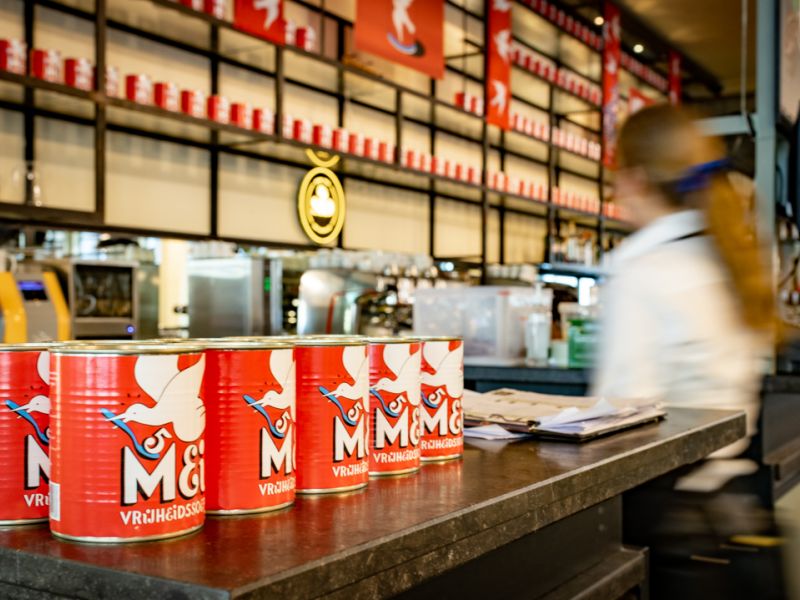
What makes the Freedom Meal a special project for you to work on?
Floor: "By making this project, we come into contact with people we might not normally come into contact with so quickly. You suddenly find yourself in other cultures and you experience neighborhoods in the city in a different way. This certainly also applies to the meal we organize in Madurodam. There, not only children from the Haganum sit at the table, but children from all districts and schools in The Hague. This way you really get out of your own bubble and get to know new people."
Anne-Lyke: "But also the fact that we are contributing to such an important and national theme makes it extra special. The Freedom Meal is already being picked up more this year than last year but it would be really cool if at some point this really becomes a tradition. That you commemorate on May 4 and are silent for two minutes, and on May 5 go to a Liberation Festival and eat a Freedom Meal together."
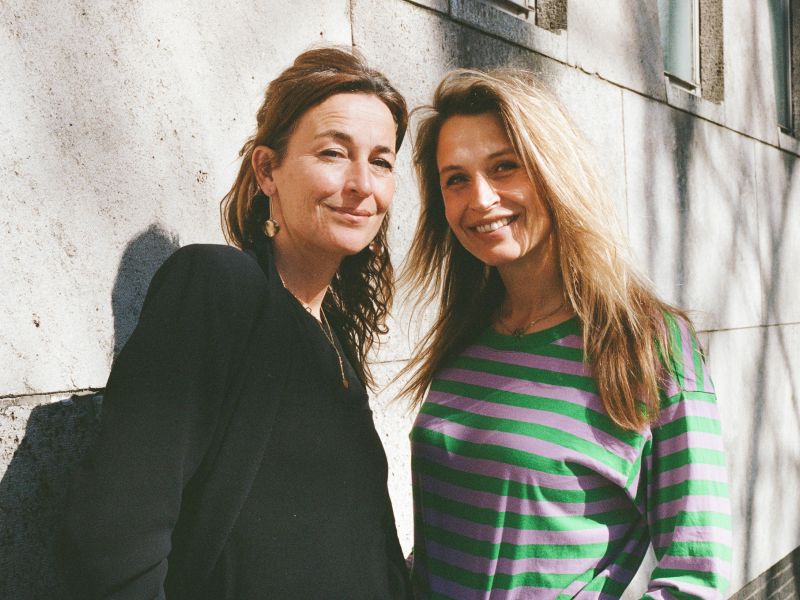
"The Freedom Meal is already being picked up more this year but it would be really cool if at some point this really becomes a tradition."
How do you hope the Freedom Meal will develop in the coming years?
Anne-Lyke: "That a movement is set in motion and more and more people start organizing meals themselves with their neighborhood association or scouting, for example. When we were still setting up this project, we imagined how nice it would be if at some point whole neighborhoods would sit down together on May 5 and open up to the neighbors across the street who they might never speak to. That, for example, nursing home Regenvalk in Weimarstraat also says, 'we're going to organize this for our elderly!' or that newcomers are paired with families."
What does freedom mean to you personally?
Floor: "That I can create my own working conditions and that I don't have to answer to anyone. But also that my children are allowed to be who they want to be and that we two women have our own business and totally rock it. I am mega grateful for that and realize it all the more when I hear stories of people where that is absolutely not the case."
"For me, freedom is also in the fact that I can enjoy dancing in the living room with my children."
Anne-Lyke: "That we here in the Netherlands have all the freedom of choice without having to think about it. And, as Floor says, that our children also have that freedom of choice. But freedom for me is also in small things like meeting new fine people, listening to music, cooking together with lovely people and dancing in the living room with my children."
Why is it important to keep organizing these kinds of events?
Anne-Lyke: "I heard someone suggest out loud the other day, 'how do you contribute to someone else's freedom?' I thought that was such a great question that really stuck with me. We have to keep meeting each other because that way you also eliminate prejudices.
Floor: "If on such a day as Liberation Day you can plant a small seed in people to open up more to other people, that's super nice."
